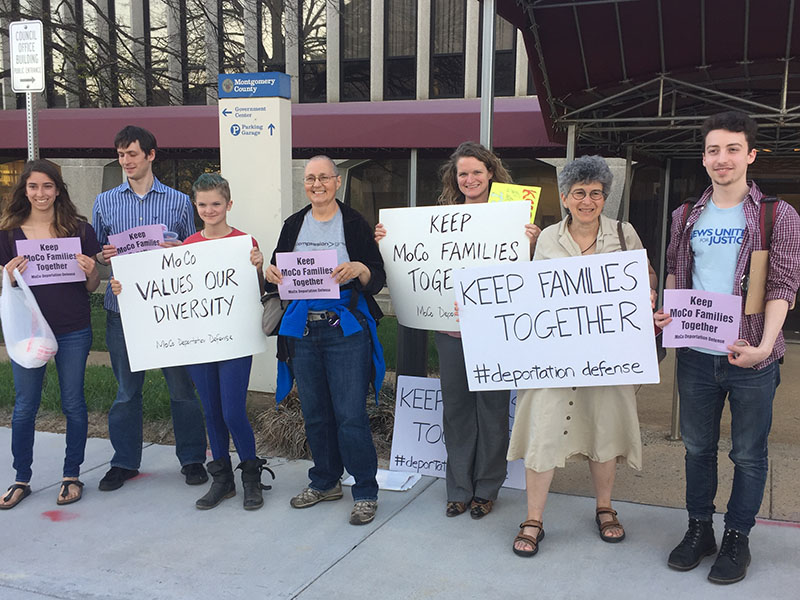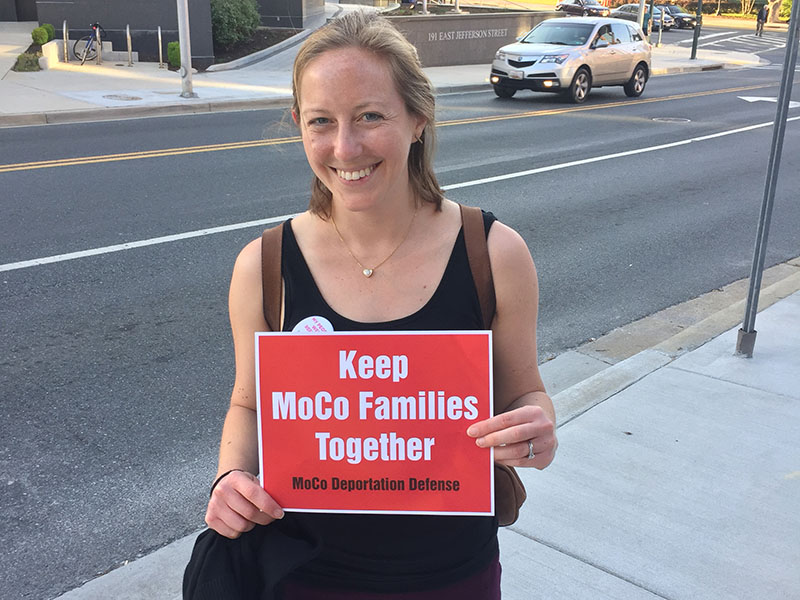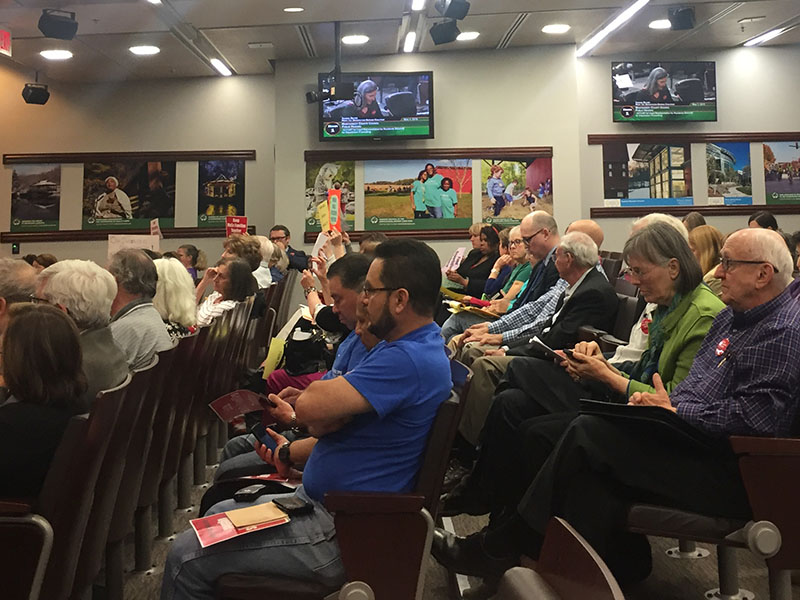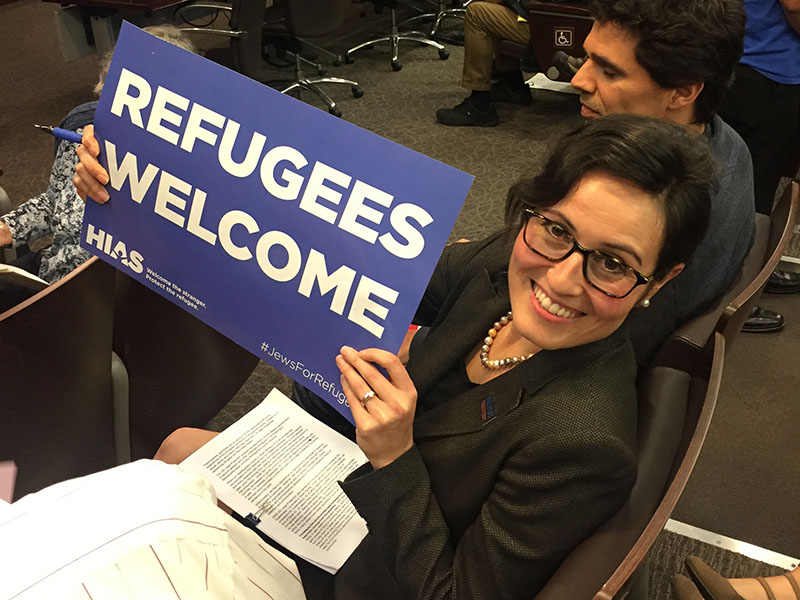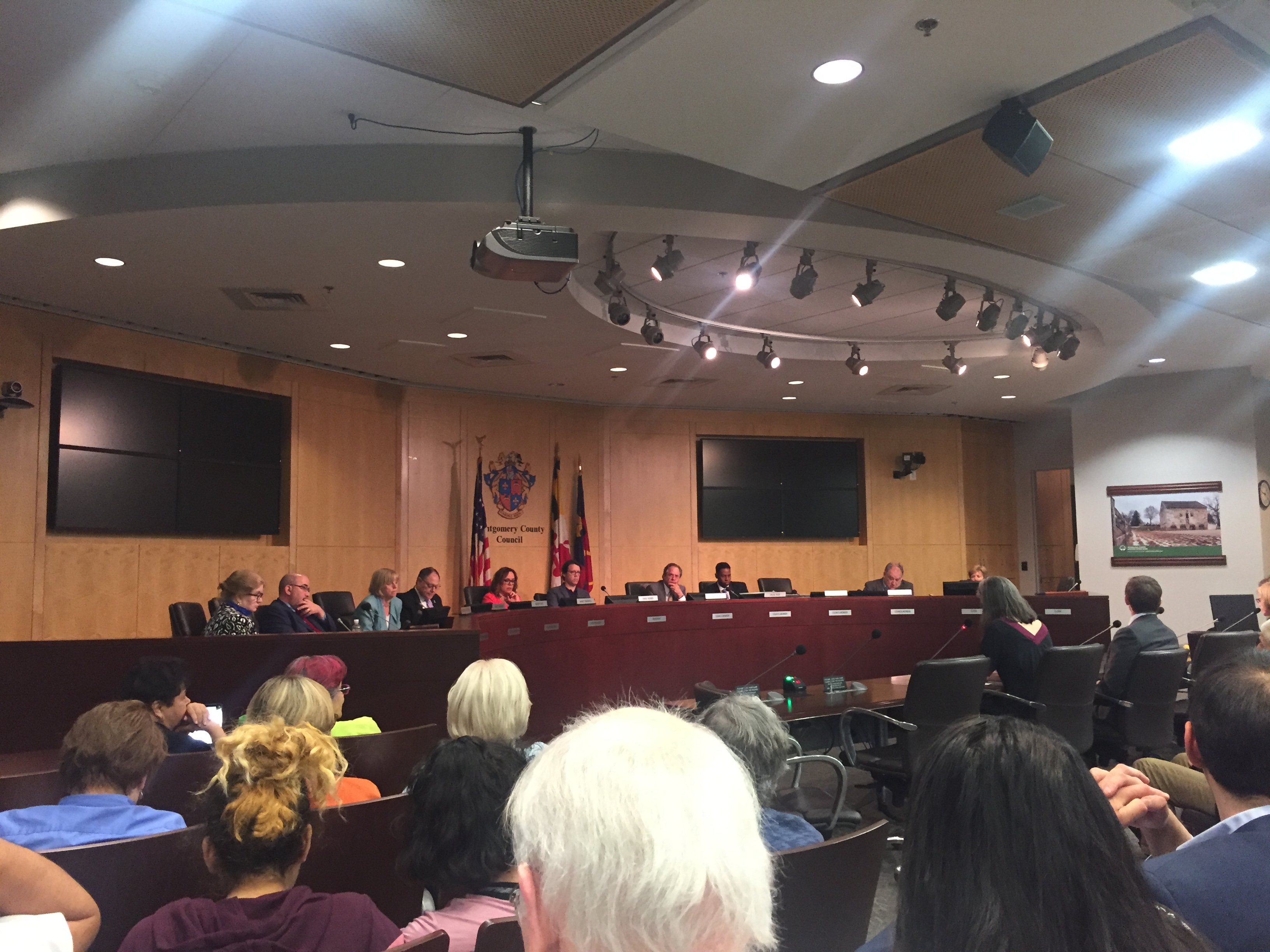At Community Hearing in Maryland, Activists Speak Out for Immigrants
By Joshua Kurtz, Guest Contributor
May 02, 2018
The national debate surrounding immigration issues continues to intensify with each effort to restrict the rights of immigrants and asylum seekers in the United States.
Last month, the Trump administration proposed quotas on immigration judges in an effort to speed up deportations. A few weeks ago, the Justice Department announced that it would halt a program that offers legal assistance to detained immigrants, only to announce it would resume the program following immense public pressure.
In February, the Supreme Court ruled that immigrants in detention do not have the right to to periodic bond hearings, and The Washington Post recently reported that the number of immigrants facing detention and deportation might soon increase, given the federal government’s decision to end the Deferred Action for Childhood Arrivals program and Temporary Protected Status (TPS) for Haitians, Salvadorans and others.
These decisions certainly impact the policy discourse on a national scale, but they are also playing out on a local stage in communities across the country.
On Tuesday, May 1, members of the HIAS community attended a public hearing on a supplemental appropriations bill introduced by the Montgomery County Council in Maryland to fund legal representation for residents facing deportation.
“A lot of folks have asked why we’re considering such an important or significant item and it is certainly my belief that what this county should be focusing on is comprehensive immigration reform,” Council President Hans Riemer commented at the start of the hearing.
“If that was passed at the federal level, many, many of our residents would have a pathway to citizenship and efforts like this would not be necessary. But here we are.”
The bill in consideration would allocate $373,957 from Montgomery County’s general fund to the Capital Area Immigrants Rights Coalition (CAIR), a D.C.-based organization that works to ensure equal justice for immigrants at risk of detention and deportation. If the measure passes, the CAIR Coalition will provide legal counsel to low-income residents facing deportation.
According to a recent study conducted by Syracuse University, only 20.6% of detained immigrants in the United States have legal counsel. And as the American Immigration Council reported in 2016, immigrants who are represented in court are much more likely to receive immigration relief than immigrants who do not.
Whereas individuals convicted of criminal offenses are entitled to public defenders if they cannot afford a lawyer of their own, immigrants who are residing in the United States without documents face civil charges and are thus not eligible for public defenders.
Members of HIAS Action DC, a network of people in their 20s and 30s committed to standing up for refugees, joined Jews United for Justice, the Jewish Community Relations Council of Greater Washington, CASA Maryland, CAIR Coalition, and a number of other local organizations to publicly support the council’s proposal. During the impassioned two-hour hearing, dozens of activists testified before the county council both in support of and in opposition to the bill.
Andrea Carcamo, a staff attorney with HIAS in Silver Spring, Maryland, testified about HIAS’ work in the area and the urgent need for accessible legal counsel. “By gaining lawful status,” she noted, “immigrants can emerge from the shadows. This, in turn, will allow them to better provide economic and emotional support to their families.”
In the Greater Washington, D.C. area, HIAS provides legal representation to individuals seeking asylum and other forms of immigration relief. The legal team also screens and provides Know-Your-Rights presentations to immigrants at the Guatemalan Consulate in Silver Spring, Maryland.
“The Jewish faith requires us to embrace the stranger, and demands we help those in need,” said Michael Friedman, the president of the Jewish Community Relations Council of Greater Washington D.C.
The Montgomery County Council’s decision comes at a moment of great uncertainty for immigrants in the United States.
“Under the Trump administration,” Carcamo explained, “immigrants who would have normally been released on parole or bond are being held for months and sometimes over a year.”
Montgomery County, which is the largest county in the State of Maryland, is not the first jurisdiction to consider such a measure. Both the city of Baltimore and Prince George’s County are part of the Vera Institute of Justice’s SAFE Cities Network, a group of 11 jurisdictions that provide publicly-funded legal representation to immigrants facing deportation. Washington, D.C., New York and California have also implemented similar programs.
“In essence,” Carcamo explained, “providing funds for legal representation is a very direct and practical way for the county to demonstrate that it is serious in keeping families and the community together.”
A final vote on the measure has yet to be scheduled.
Joshua Kurtz is a Community Organizer and Avodah Corps Member at HIAS. To take action by writing directly to the County Council, click here. To learn more about HIAS’ work advocating for America’s tradition of welcome, follow us on Facebook, Twitter and Instagram.
